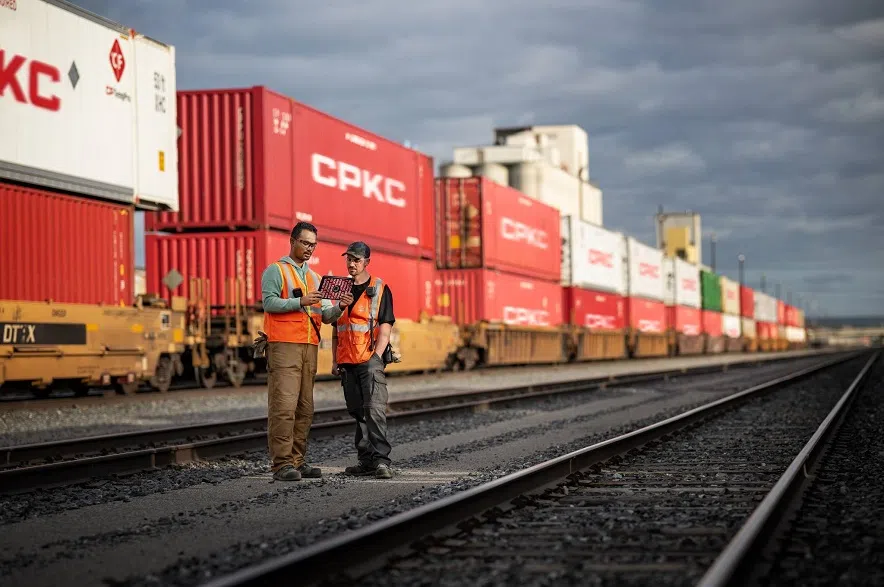A rainy May and June and a hot July so far has led to crops looking very healthy across Saskatchewan.
Ian Boxall, president of Agricultural Producers Association of Saskatchewan (APAS), joined The Evan Bray Show to discuss the farming season on Thursday.
Boxall said the moisture may have slowed down crops’ growth.
“I think some of that moisture earlier in the spring got us maybe behind a little bit,” said Boxall. “I think this heat will catch the crop up.”
Boxall said as the crops begin to flower this is a very critical time for them, but as some farmers begin to plan harvest, the Canadian Pacific (CP) rail strike looms over them as well.
Boxall said the thought of a strike brings fear to farmers.
“We export a lot of our products here in Canada,” said Boxall. “When we have issues with the supply chain we look to be unreliable trade partners. If we want to ship wheat somewhere, if we can’t get it there because of rail issues, they’re going to find it somewhere else.”
Meanwhile, farmland has increased in value over the last few years.
“I think it’s all proportionally gone up across the province everywhere,” said Boxall. “It’s a challenge for everybody … as the price of land gets up to where it is now, it makes it hard to cash flow and to make those payments on that land if you want to expand.”
APAS released its 2024 farmers and food price report, which shows what a farmer makes after their crops are sold.
“What it showed this year was that prices of food have gone up, commodity prices have fallen off and, actually, farmers are getting less, which is how the market works,” said Boxall. “But yet the cost of the food in the grocery stores has gone up.”
Boxall said it’s a great educational piece because it allows people to see all the different steps and people needed to make different food items.
A copy of the report is mailed out to every politician in the province, according to Boxall.
“It’s about explaining ‘A’ margarine went up 20 per cent, the canola went down 13 per cent last year,” said Boxall.
Boxall wants people to start asking questions about everyone else in the supply chain.
“The more information people have the better decisions they can make,” said Boxall.











